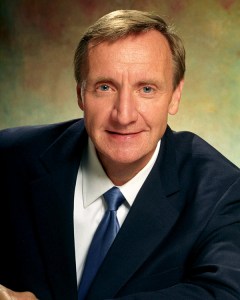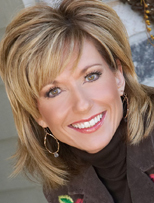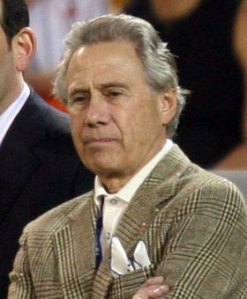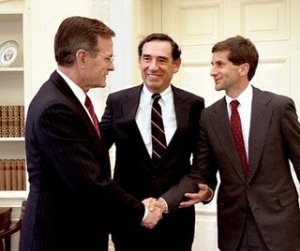[I am working on a project that may become a book on the most influential evangelicals leaders of our generation, since 1976, and the impact they’ve had on the church and their times. I will introduce them briefly on this blog from time to time. Who should be on this list?]
#34. George W. Bush. Resolute witness b. 1946

One of many things that agitated George W. Bush’s political opponents was the bold statement of Christian faith that made him one of the most visible—if not one of the most articulate—witnesses for Jesus Christ in the modern era. Bush’s public professions demonstrated the clumsy language and descriptions that evangelicals recognize as typical of new believers brought to the public stage. Bush attests that he came to faith in Christ in his mid-life as a result of wife’s influence and then a 1985 family weekend with Billy Graham.
“Over the course of a weekend, Reverend Graham planted a mustard seed in my soul,” Bush says in his testimony. “It was a seed that grew over the next year. He led me to the path, and I began walking. It was the beginning of a change in my life. I had always been a ‘religious’ person, had regularly attended church, even taught Sunday School and served as an altar boy. But that weekend my faith took on a new meaning. It was the beginning of a new walk where I would commit my heart to Jesus Christ.”[1]
His later-in-life conversion, although not uncommon, made him “among a small number of American presidents to have undergone a profound religious transformation as an adult.”[2] What matured his faith were the actions he took as a new believer: reading the Bible voraciously, becoming involved in a men’s Bible study, and committing to a regimen of regular prayer.
Bush said: “I have also learned the power of prayer. I pray for guidance. I do not pray for earthly things, but for heavenly things, for wisdom and patience and understanding. My faith gives me focus and perspective. It teaches humility. But I also recognize that faith can be misinterpreted in the political process. Faith is an important part of my life. I believe it is important to live my faith, not flaunt it. America is a great country because of our religious freedoms. It is important for any leader to respect the faith of others.”[3]
One of the most striking differences in the actions of born-again president George W. Bush and two other modern presidents who professed Christianity, Jimmy Carter and Bill Clinton—both Southern Baptists at the time of their presidencies—was the number of evangelicals that Bush surrounded himself with in his Administration.
“Though Clinton talked often about his faith,” wrote Rice University professor Michael Lindsay in his book Faith in the Halls of Power, “the presidency of George W. Bush strikes many observers as the most evangelical in recent memory.”[4]
“Bush surrounded himself with more evangelicals than any other U.S. president in the last 50 years,” Lindsay wrote. “Even among nonevangelicals [in the administration], there was a general affinity for religious faith.”
There was also divergence from his Democratic predecessors reflected in Bush’s views on the role of personal responsibility and government. Bush commented:
“The new culture has said: ‘Individuals are not responsible for their actions; we are all victims of forces beyond our control.’ We have gone from a culture of sacrifice and saving to a culture obsessed with grabbing all the gusto. We went from accepting responsibility to assigning blame. As government did more and more, individuals were required to do less and less. The new culture said: ‘if people were poor, the government should feed them. If someone had no house, the government should provide one. If criminals are not responsible for their acts, then the answers are not prisons, but social programs.’ For our culture to change, it must change one heart, one soul, and one conscience at a time. Government can spend money, but it cannot put hope in our hearts or a sense of purpose in our lives.” [5]
But more than anything Bush will be forever remembered as the president who guided the nation after the 9/11 attacks, and then as an unpopular war president. Taking a nation to war in both Afghanistan and then Iraq, and in the more vague War on Terror, subjected Bush not only with anti-war vitriol from the left, but also forced him as a Christian to consider the question of whether the conflicts were morally justified or just wars.
Christians since Augustine have used the Just War theory as a calculus for determining whether acts of aggression are morally justifiable. Historically the jus ad bellum criteria have included: just cause, right authority, right intention, proportionality, reasonable hope of success, and last resort.
There are, of course, different views on whether the conflicts that were begun under the Bush Doctrine of preemption and preventive action qualified as “just wars” using these critieria. One moral theoretician concluded:
“While there are on the face of it morally justifiable elements of the Bush Doctrine as a security response to terrorism, from the perspective of the Just War tradition the doctrine’s linkage with a power-driven, hegemonic foreign policy strategy undermines the moral credibility of the doctrine, and thus the moral credibility of the United States.” [6]
Others find moral justification for the Bush Doctrine. Jean Bethke Elshtain, in her book Just War Against Terror, cites the just war tradition as a source for legitimating her claim that it is the “burden of American power” to undertake the global war on terrorism. In her application of the just war criteria, Elshtain finds not only adequate reasoning for the Bush Doctrine conflicts, but overwhelming justification for these actions.[7]
It is perilous to analyze the personal faith of political figures in the context of their policies and popularity. To label—as I am inclined to do–George W. Bush the most Christian president of the modern era brings both cheers and jeers. There is little doubt, however, that Bush best represents among U.S. presidents an evangelical figure that experienced a profound spiritual conversion, explained his faith in the language of evangelicalism, applied the movement’s moral criteria and spiritual disciplines, and worked for policies most important to the conservative Christian church.
[1] http://www.prayforbush.com/testimony.php
[2] The Faith of George W. Bush, by Stephen Mansfield
[3] http://www.prayforbush.com/testimony.php
[4] Lindsay, D. Michael, Faith in the Halls of Power: How Evangelicals Joined the American Elite; Oxford University Press: 2007.
[5] http://www.prayforbush.com/testimony.php
[6] http://www.trinstitute.org/ojpcr/6_1snau.pdf States.
[7] Elshtain, Jean Bethke, Just war against terror: the burden of American power in a violent world, ,Basic Books; 2003.










